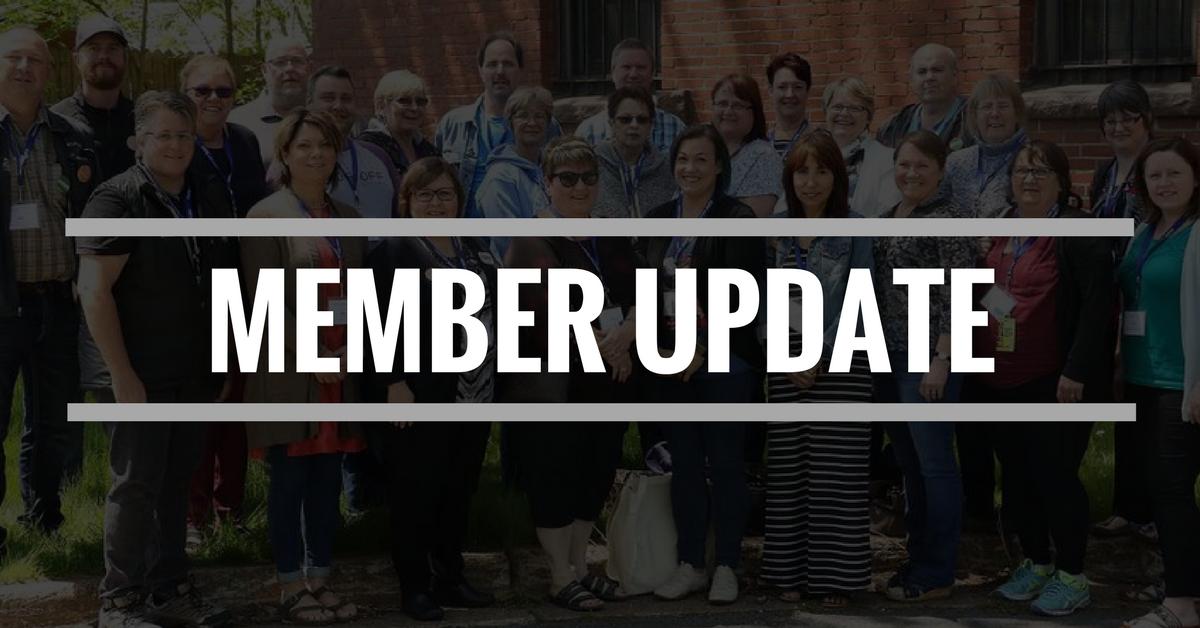The Nova Scotia Council of Health Care Unions, NSHA and IWK have completed three days of conciliation and plan to meet again in January for another five days. The last three days provided good discussion and some important progress towards a new collective agreement. However, a lot of work remains.
The parties have held 27 bargaining dates in total now, as they work to conclude a very complex set of negotiations that require bringing together collective agreements from all four unions (CUPE, NSGEU, Unifor and NSNU) in the acute care and community care sectors. This was made necessary when the provincial Liberal government created a single provincial health authority.
Despite the progress, a number of very significant items remain outstanding including job posting, job security, sick leave, group benefits, retiree benefits, vacation scheduling, leaves, overtime, hours of work and more. This remains a long and challenging process but the Council of Health Care Unions is working well together to make sure progress continues, on your behalf.
The task was made much more difficult when the provincial Liberal government enacted legislation freezing the retirement allowance for members an imposing wage restraint including two years of zero per cent increases.
In the meantime, the Council of Health Care Unions continues to work toward completing an essential services agreement with the IWK and NSHA. This agreement is being negotiated for the first time and was required by another Liberal government piece of legislation. The legislation requires a high number of people to remain at work in the event of a strike, but leaves it to the parties to determine the exact numbers.
The essential services agreement covers all 6,500 health care bargaining unit members across the province, making it a very complex task. The Liberal legislation prohibits the health care unions from conducting a strike until an essential services agreement is reached. This has limited the Council’s leverage at the bargaining table, as it attempts to negotiate new collective agreements. Once the essential services negotiations are complete, in the coming months, the Council expects to make more progress in bargaining new collective agreements.
The employers’ essential services negotiators walked away from the table in the summer and have refused to come back. The Council expects to have an essential services plan completed before the end of the year. We believe the employers will return to the table to review the completed plan.
The Council of Health Care Unions bargaining committee is made up of six members from NSGEU, three from CUPE and on from Unifor. The NSNU is also part of the Health Care Council. The Health Care Bargaining Council is the lead table in this round of health care negotiations. The committees representing administrative professionals, support and nursing are preparing to start their bargaining once an agreement is reached in health care.
Key facts on the Council of Unions
Total membership in the Council of Nova Scotia Health Care Unions: 6,506
(5,692 at the NSHA, 814 at IWK)
- NSGEU – 3,808
- CUPE – 1,940
- Unifor – 751
- NSNU – 7
The Nova Scotia Council of Health Administrative Professional Unions: 4,213
(3602 at the NSHA, 611 at the IWK)
- NSGEU – 2,979
- CUPE – 1,195
- Unifor – 35
- NSNU – 4
The Nova Scotia Council of Health Support Unions: 4,029
(3,689 at the NSHA, 340 at the IWK)
- NSGEU – 1,853
- CUPE – 1,093
- Unifor – 1,082
- NSNU – 1
The Nova Scotia Council of Nursing Unions: 9,613
(8,543 at the NSHA, 1,070 at the IWK)
- NSNU – 5,149
- NSGEU – 3,507
- CUPE – 484
- Unifor – 473
If you have questions or concerns about the bargaining process, please contact a member of your CUPE 8920 bargaining committee:
- Bev Strachan – bevjmason@hotmail.com
- Cheryl Burbidge – clb@live.ca
- Dianne Frittenburg – fritt@bellaliant.net

